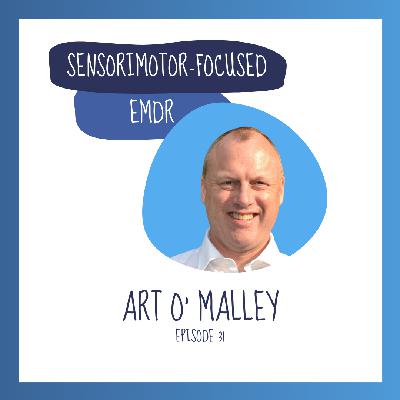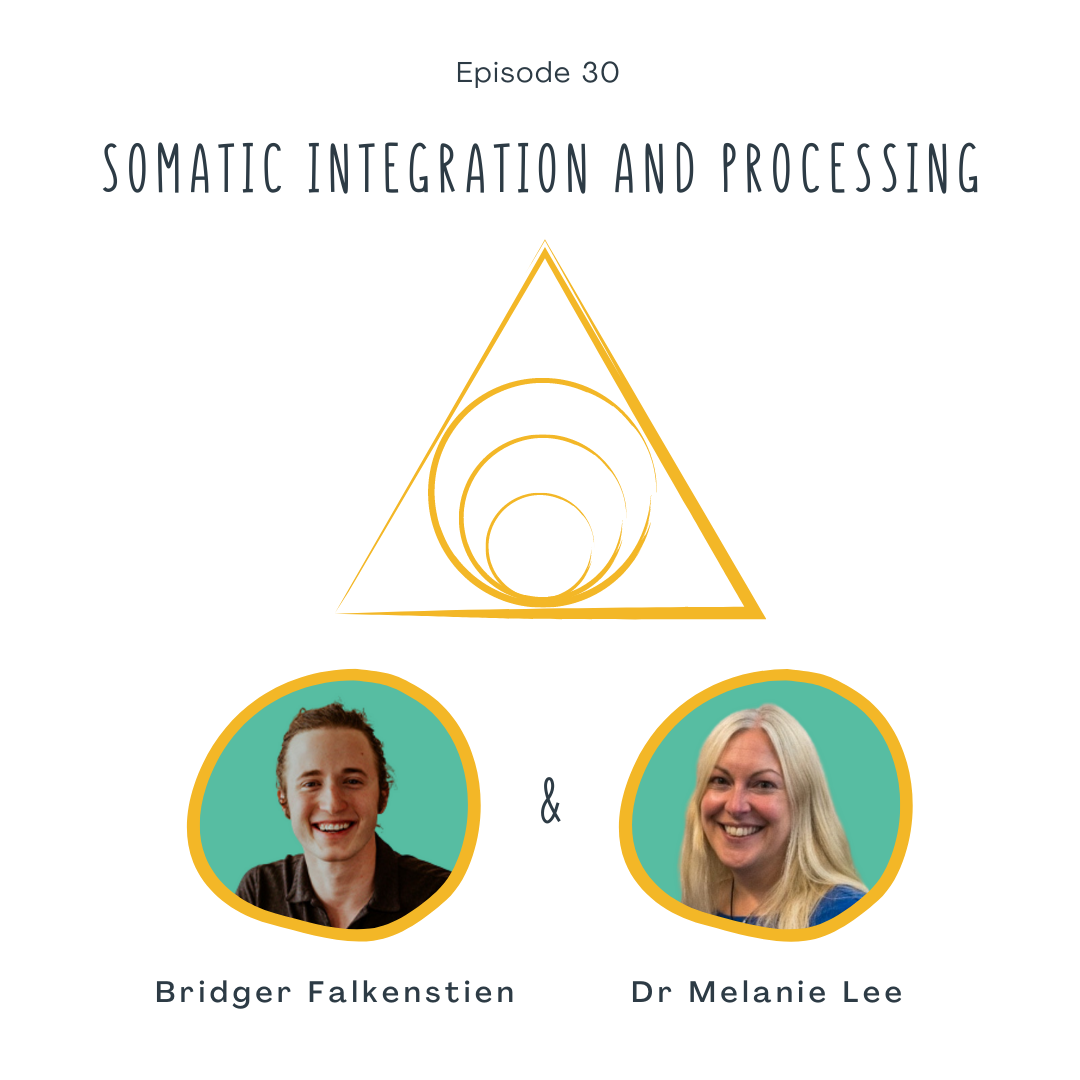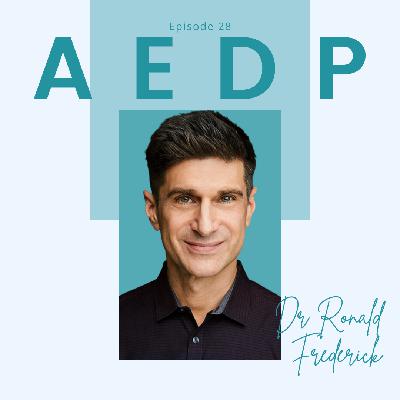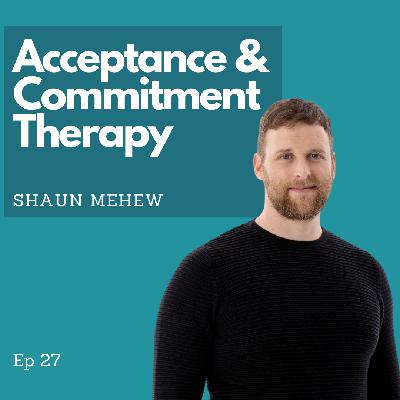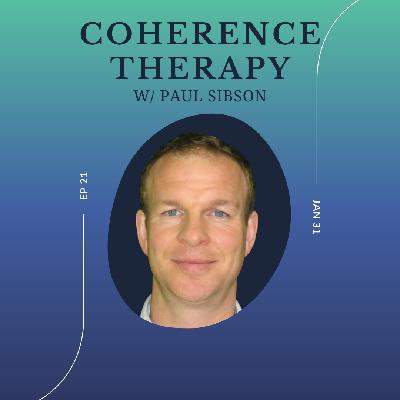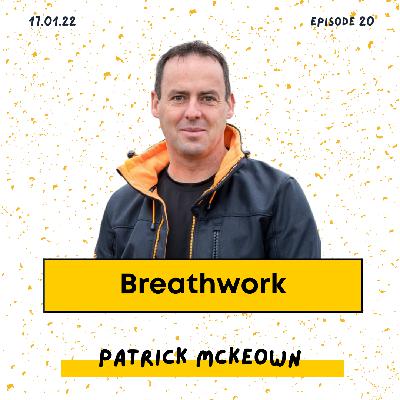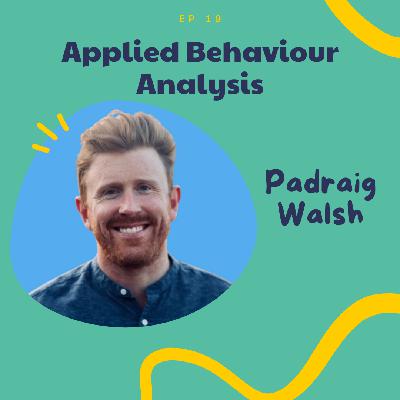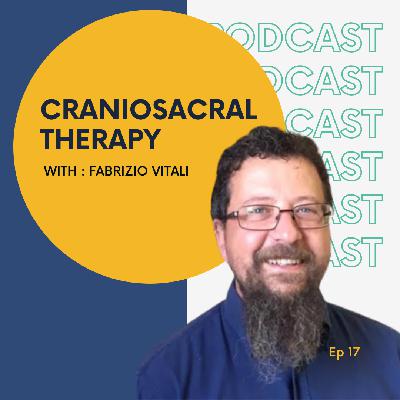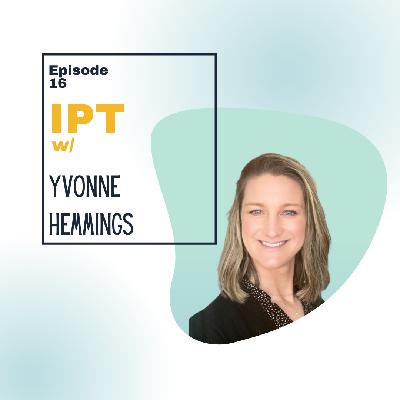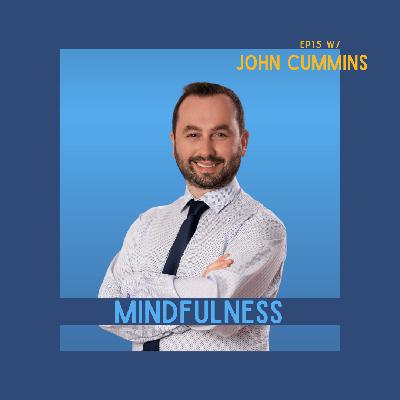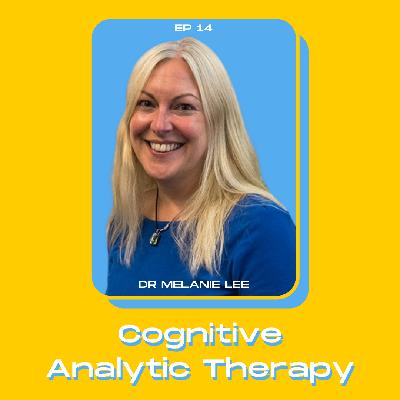Discover The Therapy Explained Podcast
The Therapy Explained Podcast

33 Episodes
Reverse
That’s a wrap!
Welcome to episode 31 of the Therapy Explained podcast. My guest today is Dr Art O’ Malley. Art has practiced as a medical doctor since 1990 and as a consultant child and adolescent psychiatrist from 2004 until 2015 for the NHS. He is currently Head of Clinical Services with The Ely Centre based at offices in Enniskillen and Markethill in Northern Ireland.Art speaks to me about Sensorimotor-Focused EMDR, which integrates two well-established therapeutic approaches Sensorimotor Psychotherapy and EMDR. Art is particularly interested in the importance of being aware of how trauma is stored in the body and the necessity to take a body-based approach to address this. Art has recently completed a two-day workshop on Sensorimotor-Focused EMDR which will be available online soon. To find out more visit www.artomalley.com.
Welcome to episode 30 of the Therapy Explained podcast. I am delighted to be joined by Dr. Melanie Lee and Bridger Falkenstien. This is a return to the show for Mel whom I spoke with in episode 14 about Cognitive Analytic Therapy and a first appearance for Bridger although he is well accustomed to the world of podcasting with his own podcasts, the Notice That podcast and the Evidence-Based Therapist podcast, both of which I am a big fan of.Mel and Bridger are here to speak about Somatic Integration and Processing, a conceptual model developed to help clinicians have a deeper understanding of working with clients.SIP is grounded in attachment and neurodevelopment, Adaptive Information Processing and Polyvagal Theory all of which are covered today. There is a lot to unpack with SIP so if you want to find out more there are free taster webinars for all therapists, psychologists, case managers, health professionals, physiotherapists, occupational therapists and medics.The first is on Wednesday 15th June at 7pm (UK time) and is called “Working Somatically in Psychotherapy” with another one on Wednesday 13th July at 7pm (UK time), called “Multiplicity of Self in Psychotherapy”.To register interest in the free webinars, please email info@trustpsychology.co.ukFurther full-day online training will take place on 1st October 2022: “Introduction to Somatic Integration Processing: how to unleash your inner therapy ninja!”.
Welcome back to a new episode of the Therapy Explained podcast. This week I am joined by Rob Ó Cobhthaigh, the co-founder of Inwardbound. Inwardbound offers psilocybin retreat programmes in the Netherlands, with pre-screening and integration processes supported by their team of facilitators. As part of our talk, Rob explains what psilocybin is and the recent resurgence in its use therapeutically, particularly in light of growing research supporting its benefits. Rob speaks about how safe it is as a substance but also the risks that do come with it as well as who it may not be recommended for. Although different for everything, Rob gives an overview of what a typical experience is like and how to best prepare for it.
Welcome to episode 28 of the Therapy Explained podcast. Today we head across the pond to speak with Dr Ronald Frederick, a clinical psychologist and senior faculty member of the Accelerated Experiential Dynamic Psychotherapy (AEDP) Institute.Ron carefully explains what AEDP is and how it came to be. Ron goes puts forwards and unpacks how AEDP is an attachment based, neurobiologically informed, emotion-focused psychotherapy.We discuss what this means, the importance of the relationship between therapist and client, the bottom-up approach, experiencing emotions in a complete manner, how AEDP relates to memory reconsolidation, unique aspects of AEDP such as metaprocessing and our innate ability to heal.
Hello and welcome back to the Therapy Explained podcast. In today’s episode, I speak with Shaun Mehew about Acceptance and Commitment Therapy, otherwise known as ACT. Shaun is a contextual behavioural science specialist with a particular interest in process based therapy. As part of his work, Shaun develops AI informed digital therapy products.Shaun gives his understanding of what ACT is, the history behind ACT, how it’s held its own in light of the development of CBT, how it works, what relational frame theory is and why it’s fundamental to ACT, the importance of values and living in the moment, tips for making change, and even an ACT demo where I take the client’s seat.
In today’s episode, I speak with Sinead Smyth, a couples’ therapist and Master Trainer in Gottman Method Couples Therapy. Sinead is the Clinical Director of East Bay Relationship Center, California and trains clinicians in the US and Europe in Gottman Method Couples Therapy.Sinead explains how the Gottman Method Couples Therapy emerged and took shape through four decades of scientific research. As part of this research, consistent patterns were discovered that differentiated happy versus unhappy couples. These included the four horsemen of the apocalypse, the four most significant predictors of breakdowns in relationships.Sinead also goes through the antidotes to the four horsemen, what types of couples do better in conflict, some differences between men and women in relationships and her golden rule for a successful relationship.Find out more about Gottman Method Couples Therapy at www.gottman.com
Thanks for joining me on the Therapy Explained podcast. This week is all about compassion as I speak with Dr Georgina Mullen about Compassion-Focused Therapy. Georgina is a clinical psychologist working at the Irish Centre for Compassion Focused Therapy in Dublin.We speak about the origins of CFT, its roots in neuroscience and attachment theory, the threat, drive and soothing responses and why these are so important in CFT, the prevalence of critical or shame-based parts of us and why CFT can help with these, working with ambivalence towards compassion and how CFT can be integrated with other modalities such as trauma-informed yoga.
Thanks for joining me on episode 24 of the podcast, where I speak with Dr Ben Sessa. Ben is a consultant psychiatrist, psychedelic therapist and chief medical officer at Awakn Life Sciences, the UK’s first on-the-high-street provider of psychedelic-assisted psychotherapy. Awakn is researching, developing and delivering evidence-based psychedelic medicine to treat addiction and other mental health conditions.In today’s episode, Ben talks to me about Ketamine-Assisted Psychotherapy, otherwise known as KAP. We talk about the emergence of KAP and how it differs from ketamine infusion therapy, how someone trains to be a psychedelic therapist, ketamine and psychological flexibility, how safe ketamine is, how patients describe their experience of taking ketamine and what the future holds for KAP.
Welcome to episode 23 of the Therapy Explained podcast. Today I am joined by Dr David Lee, a psychologist, scientist and clinical director for Sleep Unlimited. David specialises in treating insomnia with cognitive behavioural therapy for insomnia (CBT-I), considered the gold standard for treatment for insomnia.We cover the history of CBT-I, the science behind sleep and how this guides the treatment in CBT-I, leading causes and maintaining factors of insomnia, how modern technology hinders sleep quality and some of the main techniques used in CBT-I.
Thanks for joining me on episode 22 of the podcast. In this episode, I had the privilege of speaking with Paul Moore, a psychoanalytic psychotherapist and course director of the Masters in Psychoanalytic Psychotherapy, and lecturer in Psychoanalysis and Neuropsychoanalysis in Trinity College, Dublin. Paul gave me his understanding of what psychoanalysis is broadly speaking while also diving into the nuts and bolts. Paul explained how psychoanalysis has various branches, including his specialisation, post-Kleinian psychoanalysis. We spoke about some of the typical tropes of psychoanalysis, such as dream interpretation, the Rorschach test, lying on a couch, the Oedipus complex and whether and why these are still used.
Paul Sibson is a humanistic and integrative psychotherapist now working as a trainer for the Coherence Psychology Institute. He contributed to the book “Unlocking the Emotional Brain”, a groundbreaking publication on Memory Reconsolidation and Coherence Therapy.Today’s discussion covers the discovery of memory reconsolidation and how this shaped the development of Coherence Therapy, formerly known as Depth Orientated Brief Therapy. Paul explains the three stages of coherence therapy, discovery, integration and transformation, what these look like in treatment and why they are fundamental to lasting change.If you want to find out more, please follow the link in the description to read the case study Paul references during our talk, as well as an article on memory reconsolidation authored by its founders. https://www.cbtplus.ie/podcast/ep-21-coherence-therapyThe Coherence Psychology Institute website: https://www.coherencetherapy.org/Contact Paul: paul.sibson@coherenceinstitute.org
Article
Case Study
Episode 20 sees me joined by breathwork expert Patrick McKeown. Patrick is hugely passionate about the power of the breath, in part due to the impact poor quality breathing had on his physiology in his younger years, as well as the misinformation on breathing in society at large. Patrick explains the risk mouthing breathing poses to our well-being, something that is rarely picked up on at critical periods by parents or health professionals. Through his work, Patrick has contributed to the field of breathwork with programmes that help develop functional breathing patterns. Patrick tells us how we can measure whether we have optimal breathing patterns with a simple exercise and practical changes we can make to improve a fundamental component of our health, our breath.
Thanks for joining me on another episode of the Therapy Explained podcast. My guest today is Behavioural Psychologist Pádraig Walsh, a specialist in applied behavioural analysis (ABA). Pádraig has a wealth of experience working with families, organisations and schools using ABA which shone through in our talk. We discussed the principles behind ABA and how these are applied in the real world to improve socially significant behaviours for a range of people, including children with developmental disabilities, students who may be struggling in mainstream education and influencing the wider population on their decision making.
Hello, welcome back to the Therapy Explained podcast. This week I am speaking with Bruce Hersey, an Internal Family Systems-Informed EMDR consultant. I am excited to share this episode as we talk about the two forms of therapy that interest me the most, Internal Family Systems, also known as IFS, and EMDR. Both therapies are trauma-informed, meaning they consider a person's current problem to have its roots in early life events, commonly childhood. They also share the idea that we have 'parts' of us that are traumatised, and should we help heal these parts, we can notice a significant shift in how we feel and act in the present. There is a lot of information on IFS and EMDR, but not much about where and how the two intertwine and enhance each other, so I was delighted to speak to Bruce about this. This episode is probably one of the more technical or jargony, so if you haven't heard about IFS or EMDR before, it might be worth checking out episodes two and four, where each is covered in much more detail.
Thanks for joining me on another episode of the Therapy Explained podcast. This week we're discussing craniosacral therapy, a form of bodywork consisting of remarkably light touches across the body. Joining me is Cork-based craniosacral therapist Fabrizio Vitali. Fabrizio describes his discovery of craniosacral therapy, how it was developed, its physiological basis, what a typical session looks like, common misconceptions, the connection between physical and emotional trauma and much more.
Thanks for joining me for episode 16 of the Therapy Explained podcast. Today I’m joined by Yvonne Hemming where we discuss interpersonal therapy, more commonly known as IPT.Yvonne explains what IPT is, in particular the impact current interpersonal relationships have on our mood, the different focal points of interpersonal problems (those being conflict, transition, grief and interpersonal sensitivities), the history of IPT, how IPT has enriched Yvonne’s clinical work, how it’s been adapted over time and what we might expect of IPT in the future. If you enjoy today’s episode please feel free to rate and review wherever you get your podcasts from.
Hello and welcome back to the Therapy Explained podcast. Today, I’ll be speaking with Mindfulness teacher John Cummins. We spoke about John’s journey to mindfulness, what it was about mindfulness that led him to want to teach it, how it can help you, the risks of the overprescription of mindfulness, and some of John's recommendations for those wanting to learn more about it. Learn more about john here - https://www.mindfulcbt.ie/. So settle back, enjoy, and don’t forget to subscribe on Apple Podcasts, Spotify, or wherever you get your podcasts.
Thanks for joining me on episode 14 of the “Therapy Explained” podcast. I’m joined by Dr Melanie Lee of Trust Psychology as we discuss cognitive analytic therapy (CAT). Mel talks through the history of CAT, how it balances structure and flexibility, the importance of the therapeutic relationship, endings in therapy and where CAT fits alongside EMDR and IFS in her practice. To help spread the word, please don’t forget to review, rate and follow.
Welcome to episode 13 of the Therapy Explained podcast where I speak to EMDR guru Melissa Benintendi. Now, although EMDR is a real passion of mine, this week, Melissa and I talked about a passion of hers, Reiki. We cover what Reiki is and where it comes from, where it converges with modern psychotherapies, its relationship with the placebo effect and what that actually means, Melissa’s path to Reiki and much more. Apologies for some of the audio quality on this episode, but it’s a real humdinger, so I hope it makes up for that. As ever, don’t forget to subscribe and leave a rating where you can.



